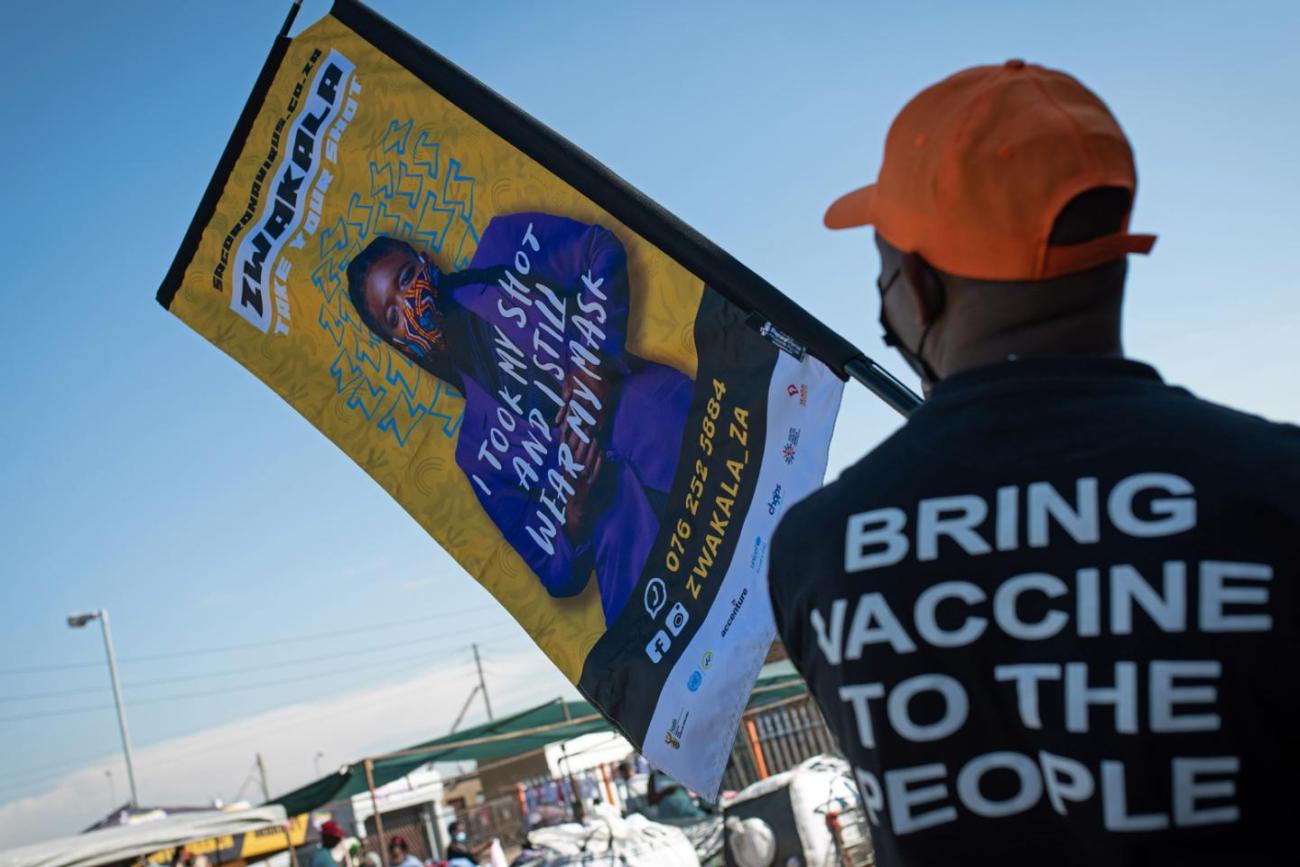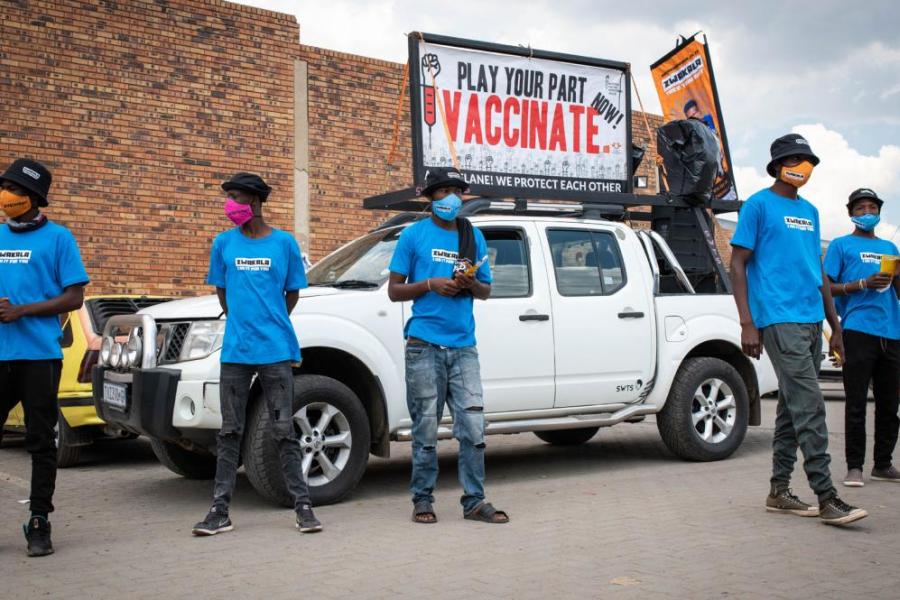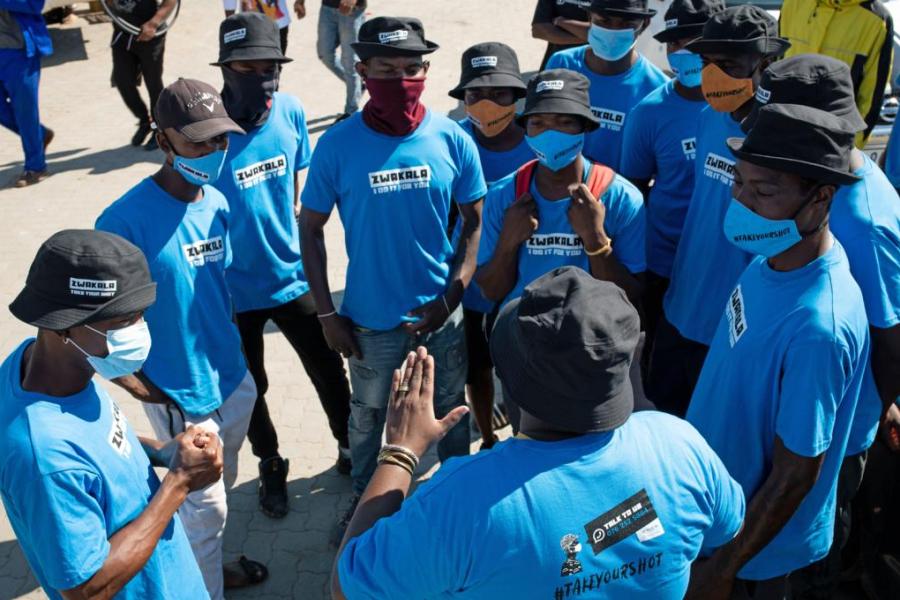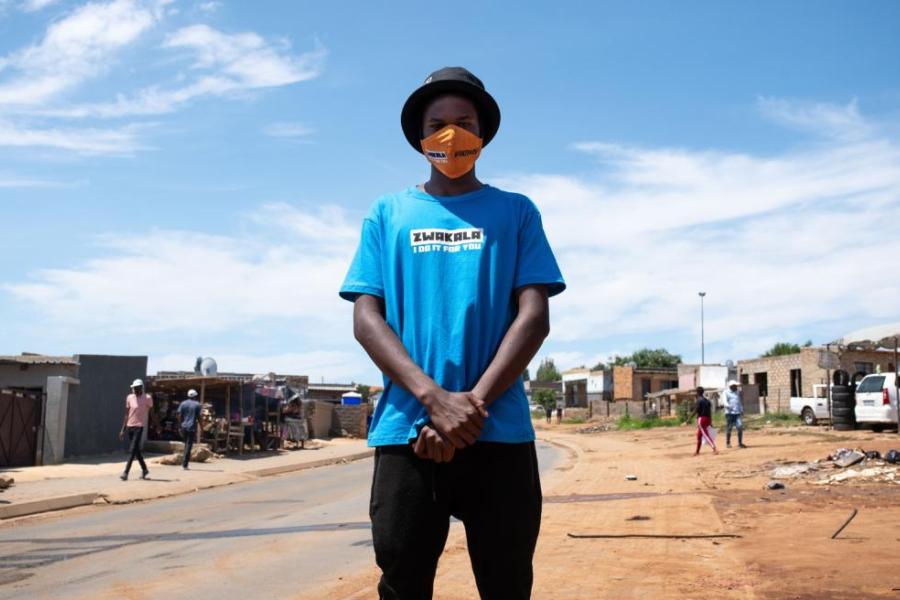Zwakala Covid-19 campaign: Take your shot!

An innovative campaign in South Africa is using local solutions in the global fight against COVID-19
"We were shocked and I was scared of Covid-19 because many people were dying because of it,” says 17-year-old Bafana Chabalala, “I remember my sister had it…so it was bad with my family…we couldn’t hold on with this coronavirus.”
Bafana was 15 when Covid-19 became a global health crisis and his community of Ivory Park, a township roughly halfway between the cities of Johannesburg and Pretoria in South Africa, was forced into lockdown along with the rest of the world.

Now, two years later, Bafana is contributing towards better managing the pandemic by helping his community get informed about the virus and to get vaccinated, one street at a time. Bafana is a mobiliser in an innovative campaign hitting South African streets called “Zwakala”which calls on young people to get vaccinated and “#TakeYourShot” while promoting mask-wearing and social distancing.
A joint partnership between UN Verified, UNICEF, the South African National Department of Health as well as the Community Organizing Working Group and the Community Media Trust, Zwakala is simultaneously an on-the-ground, door-to-door mobilization effort and a multimedia campaign. The word “zwakala” is a colloquial isiZulu expression usually used to compel a friend or neighbour to “come on over” or “come around” and it’s on the ground and in neighbourhoods like Ivory Park that Zwakala’s community-centric approach really comes into its own.

On the days before (and on the day of) a pop-up vaccination site being set up, a pick-up truck with an improvised PA system drives around the area, playing “amapiano” – a popular genre of music with young people – and repeatedly interspersing the songs with voice overs announcing the date, time and venue of the upcoming pop-up vaccination site.
The truck is accompanied by mobilisers like Bafana who go up to curious onlookers handing them an information pamphlet, answering their questions and explaining directions to the venue.
These young mobilisers grew up in Ivory Park and are known and trusted more than an outsider might be, and – when it comes to a topic that many people in South Africa and indeed across the world are still apprehensive about – a friendly and recognizable face makes all the difference or neighbour to “come on over” or “come around” and it’s on the ground and in neighbourhoods like Ivory Park that Zwakala’s community-centric approach really comes into its own.
On the days before (and on the day of) a pop-up vaccination site being set up, a pick-up truck with an improvised PA system drives around the area, playing “amapiano” – a popular genre of music with young people – and repeatedly interspersing the songs with voice overs Bafana believes that the campaign has made a difference in his community, especially since it extends vaccination services to those who do not have formal documentation – which is an added challengeWhile there is a perception that undocumented people in Ivory Park are foreign nationals, this is only partly true as many South Africans themselves are not properly documented.
Avoiding an ‘us-and-them’ distinction that could keep foreign nationals fearful of coming forward due to outbreaks of xenophobic violence, mobilizers call on all to get vaccinated, “whether you have an ID or not”.
In addition to being undocumented, many people simply cannot afford to travel the long distances required to get to a hospital or clinic.
Through partnership with the Gauteng Province’s Health Department, the pop-up vaccination partnership sites also provide additional health services with blood pressure checks, screenings and routine childhood immunizations for children who may have missed their shots, "[I]didn’t think I would be vaccinated,” says Neliswa Mnana, an Ivory Park resident who came to one of the pop-up clinics for her Covid-19 jab together with her 6-month-old son Lwazi, who needed his routine immunizations.
“I always wanted to vaccinate but when I see the distance of going to a clinic, I would just say, ‘Nah, I will go tomorrow, I’ll go tomorrow.’ But when I heard the announcement that we could come to the park and vaccinate,








